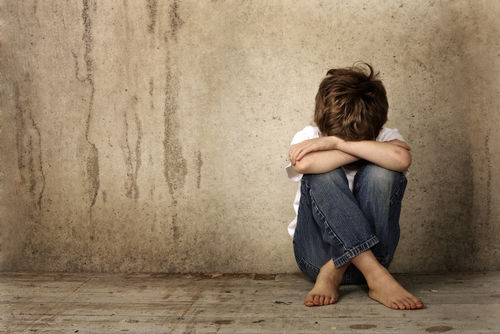The question of whether or not corporal punishment (spanking) is an appropriate method of discipline for children has been in the headlines. News anchors, sports figures and even Pope Francis have spoken about the topic.
The phrase “Spare the rod and spoil the child” is often attributed to Scripture, but it is in fact a line in a satirical poem published in 1663 by Victorian author Samuel Butler. While it has origins in Proverbs — “Whoever spares the rod hates their child, but the one who loves their child is careful to discipline them” (13:24) — modern interpretation suggests the passage is about the importance of guiding children. It is not a green light for using a rod, belt, wooden spoon or human hand to hit a child.
Discipline is often associated with punishment and with children, especially young children, punishment can mean spanking. Discipline is as much about instructing, teaching and training as it is about punishment.
Discipline is meant to help children make good decisions. It is never about hitting a child; rather, it is about setting a good example, avoiding constant criticism and nagging and having the flexibility to know when rules need to be changed. It also requires a sense of humor which helps a parent keep perspective about what is really important. Discipline is ultimately about respect and love.
The American Psychological Association cites numerous studies showing corporal punishment, including spanking, can lead to problems of aggression and anti-social behavior in children. Their research finds that while physical punishment can work in the short term because children are frightened of being hit, it does not work in the long term.
The American Academy of Pediatrics also opposes spanking, citing it as “the least effective way to discipline.” In their literature offering guidelines on effective discipline they “recommend that parents be encouraged and assisted in the development of methods other than spanking for managing undesirable behavior.”We do not need studies to tell us spanking is unacceptable. All a parent has to do is notice how they feel if and when they spank their child. It is not a proud moment and in the end it teaches the child that hitting is way to solve conflicts.
Common sense dictates that an adult hitting a child is improper. When parents react out of anger, frustration, fatigue or in the midst of feeling overwhelmed due to childrearing, work or other responsibilities and lash out physically, it is time to assess their own behavior and calmly plan a course of action for dealing with their child’s behavior.
There are plenty of alternatives to spanking. A parent can give the child a time out or consider giving themselves a time out by walking away from the situation momentarily and returning to it when things are calmer.
Making eye contact with the child while holding their hands and speaking in a serious tone can be effective. Every parent knows the triggers for their child and for themselves. They can create workable strategies for disciplining that does not include hitting. The key is to be consistent, calm and patient.
Parenting is a 24-hour a day commitment. It requires unconditional love, strength and stamina. It should include (but often does not) time for parents to play, relax, get away for short periods of time and have the opportunity to pursue those things they enjoy outside of the family.
It is the toughest job out there but also the most rewarding. It brings the highest highs and sometimes lowest lows and it is still worth it. All children behave at times in ways that baffle, irritate and frustrate their parents. Children can be defiant, disobedient and generally difficult to deal with, but at the end of the day when things are quiet and there is time to think, parents will tell you they would not trade the experience for anything. Children are gifts to be cherished.
I remember well the years of active parenting and am sure each of my five children could share stories about my lack of patience, raised voice and many other less than admirable parenting techniques over the years. There are no perfect parents, just ones who love and face each day praying for the strength and wisdom to raise their children to the best of their ability.

